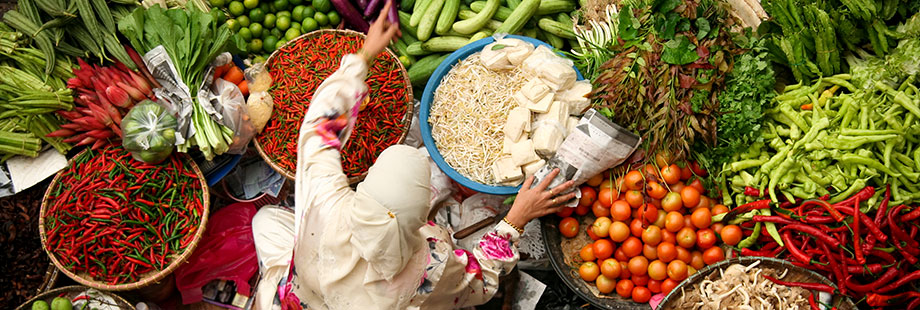Trade Policy
Over the last decade there has been a proliferation of bilateral, plurilateral, regional and mega-regional trade agreements.The volume of trade is projected to expand for most agricultural commodities, trade rules are ever more complex, and trade instruments are being used by some countries in times of food crisis to guarantee available and accessible food.
Making trade work for improved food security and nutrition.
Trade impacts directly on food volumes and prices in national markets and hence affects each dimension of food security (availability, access, utilization and stability).
FAO supports members in multiple ways, providing: information and in-depth analysis on the possible consequences of trade policies; capacity development to improve understanding of international trade rules and their implications; neutral forums for dialogue between trade and agriculture stakeholders; support to regional trade integration; and assistance in preparing for trade negotiations and in implementing agreements.
Key policy messages
· Trade policy has a critical role to play in eradicating global hunger by 2030, but trade alone cannot address all of the socio-economic and political challenges that influence food security and nutrition.
· Multilateral trade rules, which take into account the specific needs of developing countries, are needed to ensure that the expansion of agricultural trade is conducive to the eradication of hunger, food insecurity and malnutrition. This is particularly pertinent in times of crisis. COVID-19 is a reminder of the importance of international trade in mitigating the impacts of shocks and protecting livelihoods while ensuring food security.
· Trade policies must consider the different needs and roles of both large-scale agricultural producers and those of smallholder and family farms.
· Sound policies for food security and nutrition balance a reliance on trade with domestic production to ensure stable food availability and accessibility. At the same time, policies should raise income levels for the rural poor and improve nutritional value in food chains.
· FAO assists Members in strengthening their capacities related to international trade agreements and the promotion of export opportunities. The focus is on the development of evidence-based analyses, knowledge sharing, technical assistance and dialogue on key issues related to food and agricultural trade, including regional and multilateral trade negotiations.
· Trade and governance are tightly interrelated and both carry cross-sectoral relevance within FAO. It’s crucial to develop an ever-improving framework for trade-related policy-making processes in accordance with standards and regulations set in place by the WTO. FAO aims to make trading systems as free, fair, predictable and inclusive as possible on local, national, regional and global levels.
Featured resources








Briefs
Trade and Sustainable Development Goal 2 – Policy options and their trade-offs

